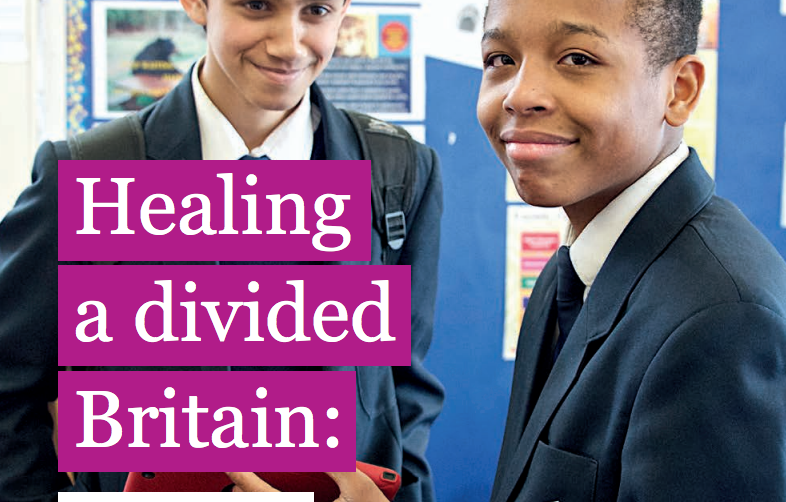The UK’s national equality watchdog has warned that Black and ethnic minority people in Britain still face “entrenched” race inequality in many areas, including employment, housing and health.
The Equality and Human Rights Commission has today published the biggest ever review into race equality in Britain. It looks at several areas including education, pay and living standards, criminal justice and democratic participation. The report paints an “alarming picture” of inequality of opportunity that remains in Britain today.
What are the key findings of the report?
The report warns that failure to tackle deep-rooted race inequality will exacerbate divisions in our society unless the Goverment takes urgent action. The Chair of the Equality and Human Rights Commission, David Isaac CBE, said that the report reveals a “very worrying combination’ of a post-Brexit rise in hate crime and long-term systemic unfairness and race inequality”.
The report shows:
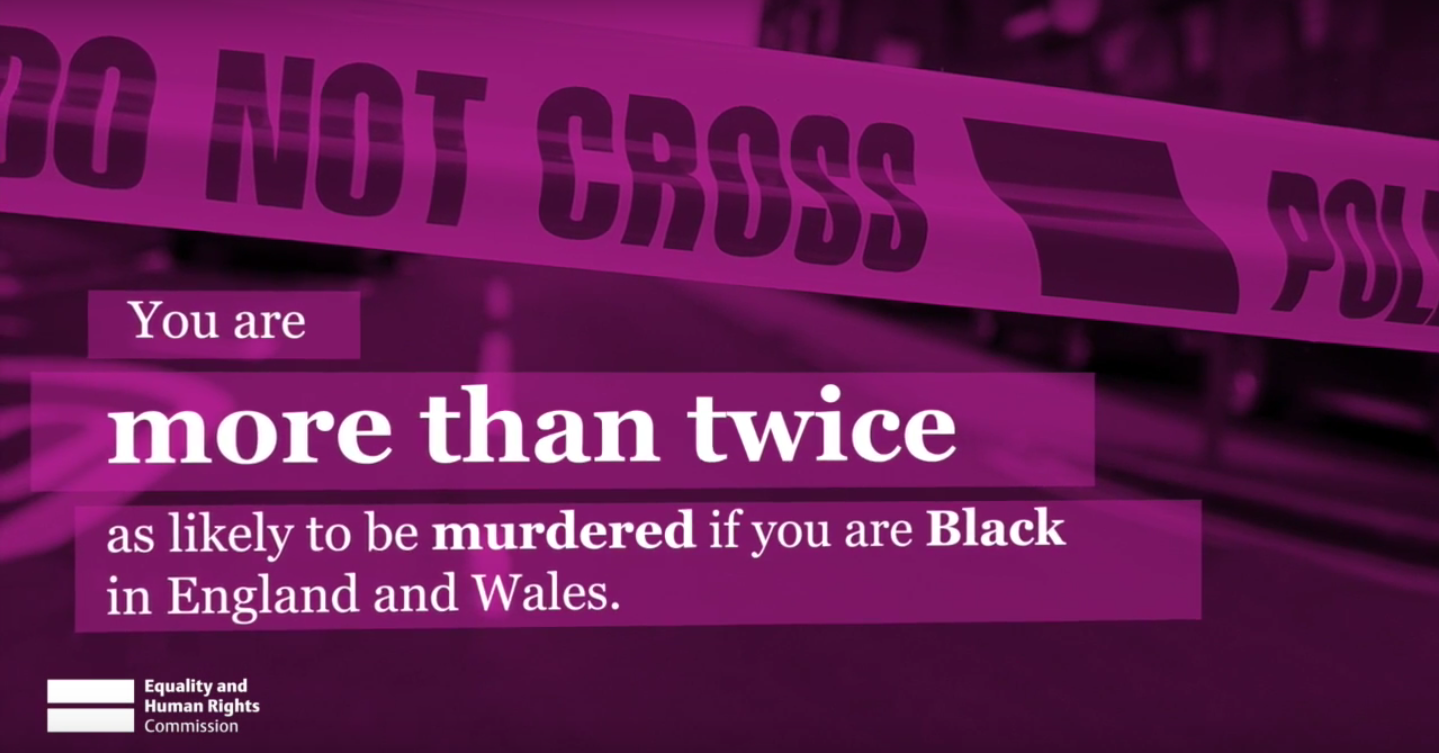
– Black people are much more likely to be victims of crime and to be treated more harshly in the criminal justice system. You are more than twice as likely to be murdered if you are Black in England and Wales and three times more likely to be prosecuted and sentenced than if you are White.
– Race is the most commonly recorded motivation for hate crime in England and Wales. Hate crime is any crime that is targeted at a person because of hostility or prejudice towards their disability, race or ethnicity, religion or belief, sexual orientation or transgender identity. 82% of hate crimes have race recorded as the motive.
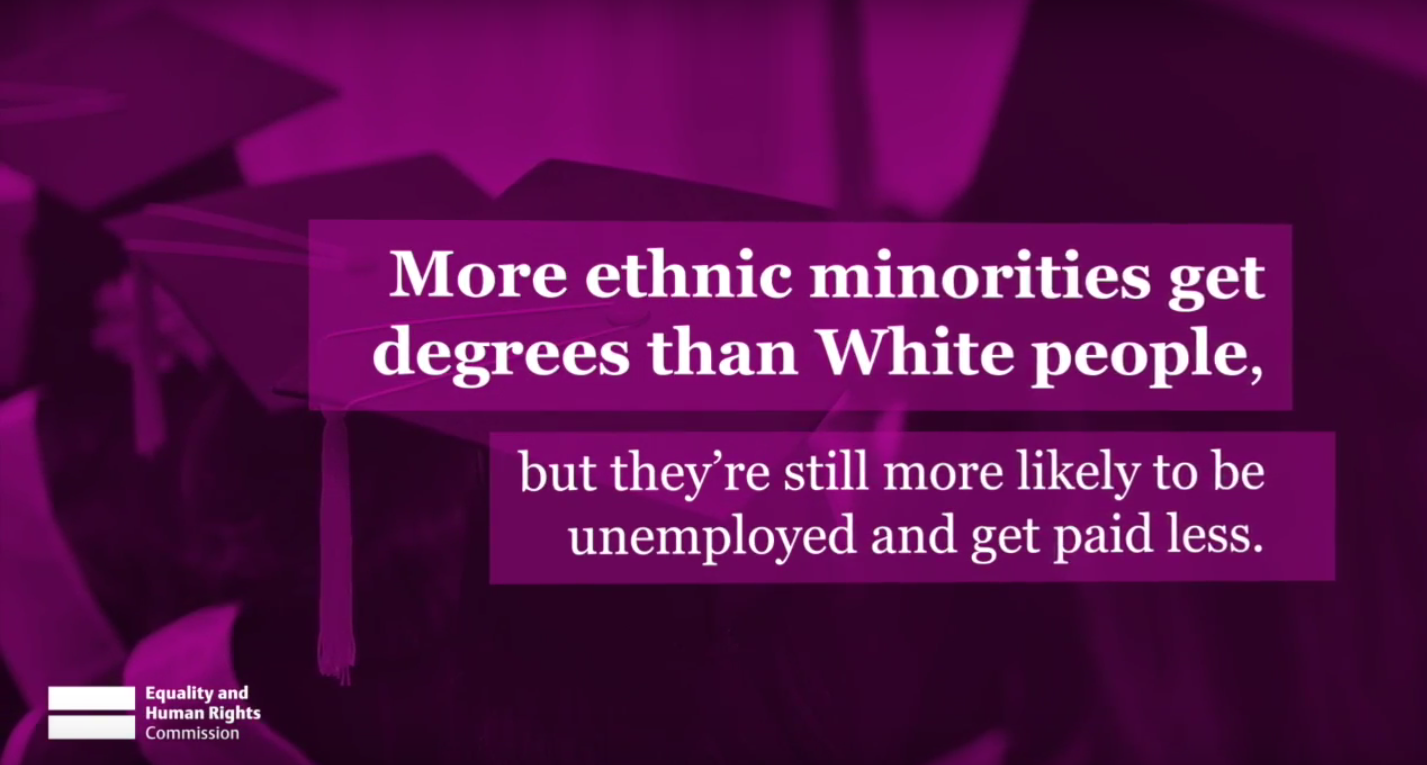
– Black, Asian and ethnic minority workers with degrees are two and a half times more likely to be unemployed than White workers with degrees. Black workers with degrees are paid 23.1% less on average than White workers with degrees.
– The life chances of young people from an ethnic minority have become much worse over the past five years and are at the most challenging for generations. Since 2010, there has been a 49% increase in the number of 16-to-24 year olds across the UK from ethnic minority communities who are long-term unemployed, compared with a fall of 2% for White people.
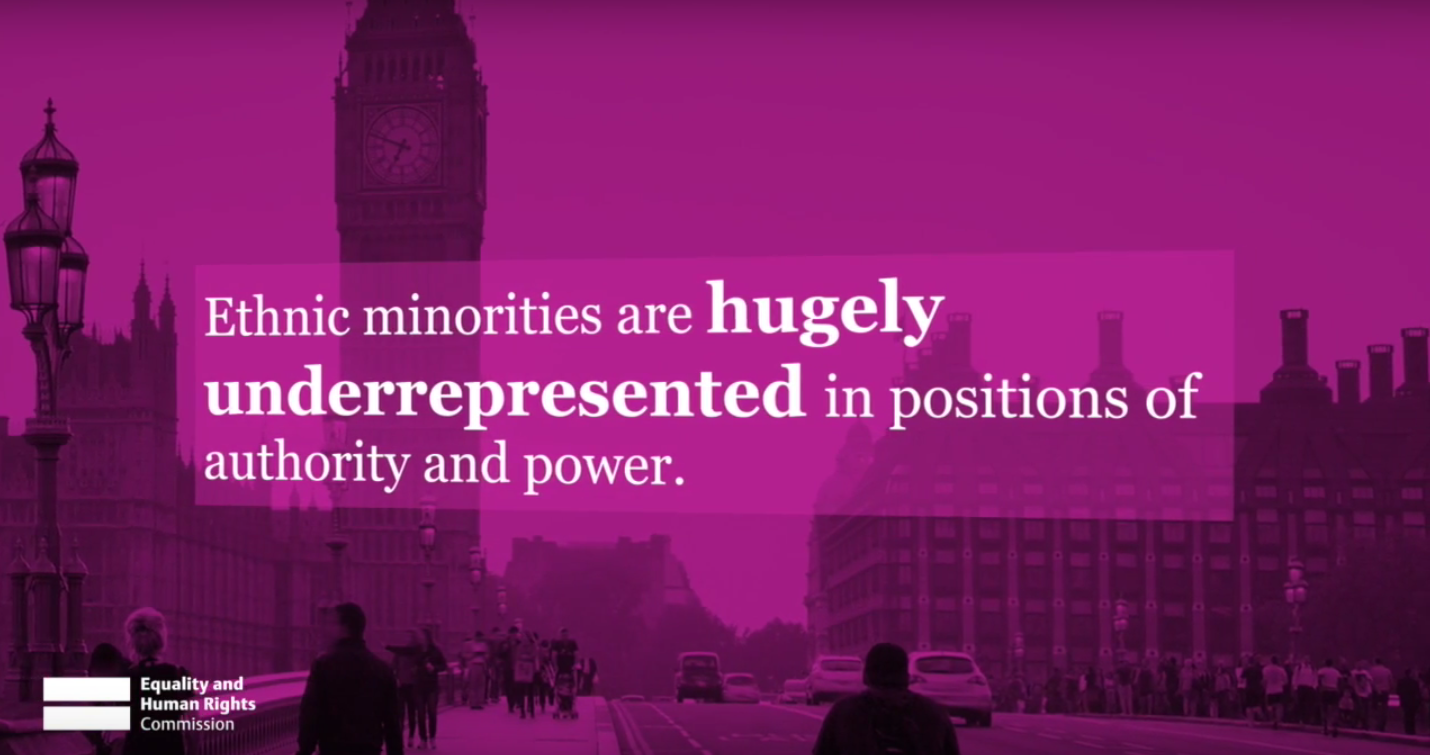
– In England and Wales, just 6% of MPs are from an ethnic minority, only 5.9% of judges (of those who declared their ethnicity) and 5.5% of police officers.
– White women are more likely to report being a victim of domestic abuse than ethnic minority women (7.4% of White women compared with 4.4% of ethnic minority women). However, Black and ethnic minority women exclusively suffer from female genital mutilation (FGM), honour killings and forced marriage.
There have also been areas of some progress. For example, the 2015 General Election saw an increase in ethnic minority MPs (from 4.2% to 6.3%). Since 2008, all ethnic groups have seen an increase in the proportion with a degree-level qualification. For Indian people there was an increase of 18.1 percentage points to 49.5%, for African/Caribbean/Black people it was a 9.6 percentage point increase to 34.7% and for Pakistani/Bangladeshi people it was a 9.7 percentage point increase to 27.6%. Chinese students and Indian communities are progressing well in many areas of life, including education and employment.
However, the report warns that this is not nearly enough progress and much more needs to be done.
What should we do about it?
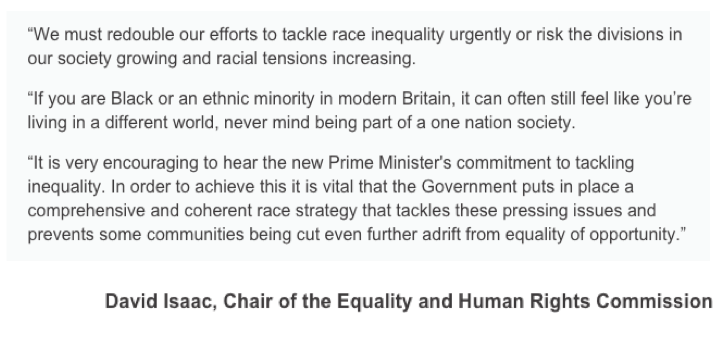
The report recommends that the UK Government plans a “comprehensive, coordinated and long-term strategy” with clear and measurable outcomes to achieve race equality. This strategy should be developed and delivered between the UK, Scottish and Welsh Governments, and should come under the responsibility of one secretary of state, with clear accountability across Government.
The Equality and Human Rights Commission also wrote to the UN Committee on the Elimination of Racial Discrimination (CERD) in July 2016, setting out recommendations for the UK Government to tackle race inequality. This submission included recommendations that the UK Government carry out a full-scale review of sentencing for hate crimes in England and Wales and ensure that police stop and search is being used in a lawful and non-discriminatory way.
What does this have to do with human rights?
Freedom from discrimination is a human right. Article 14 of the European Convention on Human Rights (which takes effect in UK law through the Human Rights Act) ensures that no one is treated less favourably in the enjoyment of their rights because of one of the characteristics listed in Article 14, which include race, colour and national origin. Race is also one of 9 ‘protected characteristics’ under the Equality Act 2010, which applies to employers, education providers, people who provide goods and services to the public and anyone in the public sector. It is unlawful for these organisations to discriminate against anyone because of their race.
Read the full report: Healing a divided Britain here. Click here to read more about race hate crime and here for key statistics on race hate crime.
Learn more about how human rights fight race discrimination with our explainer and our other equality resources.

